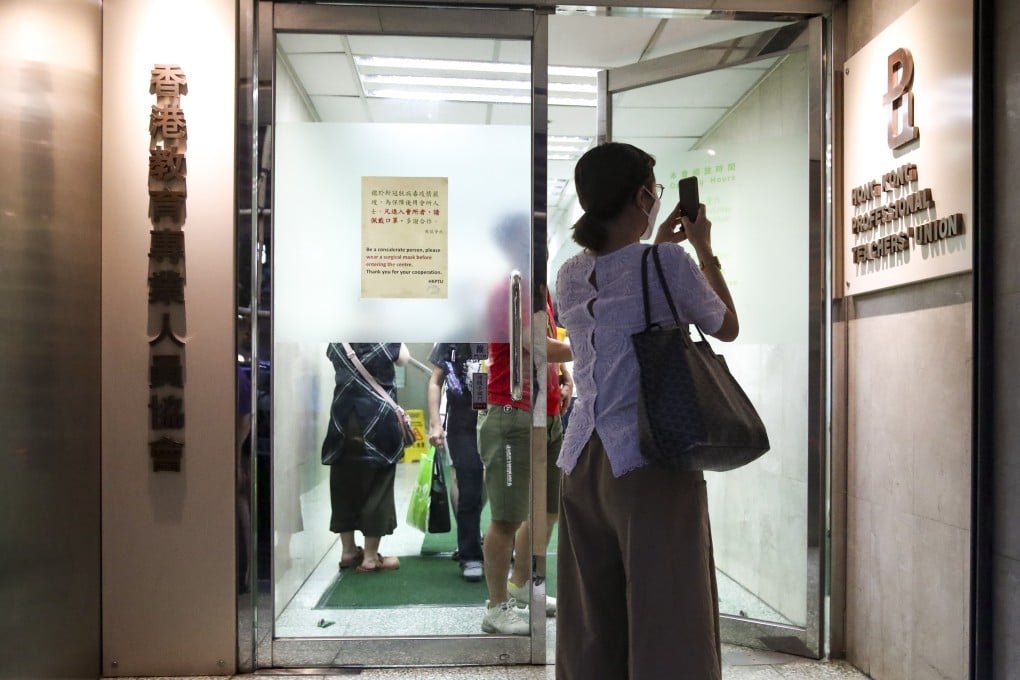‘Heartbreaking but expected’: members of Hong Kong’s biggest teachers’ union mourn loss of their defender
- The announcement by the Professional Teachers’ Union that it is folding after more than 45 years came as a shock to many
- The group’s role in giving educators a voice cannot be filled by another organisation any time soon, members and analysts warn

Members of Hong Kong’s biggest teachers’ union are mourning the sudden decision to disband a group that staunchly defended their rights for decades, saying the organisation cannot be replaced by another body any time soon.
Analysts described the break-up of the Professional Teachers’ Union (PTU) as yet another heavy blow to the opposition camp and warned that other prominent outfits could come under greater pressure in the city’s highly charged political climate.

Lining up outside the Good Hope Building on Nathan Road, members told the Post they came after hearing the news.
“I feel very bad about this,” said one retired lecturer who joined the union more than 20 years ago and did not wish to be identified. “When I read the news that the PTU is disbanding, I thought to myself: this is something that could not be happening for real. But when I think about the current [political] atmosphere, there is not much that the union can do.”